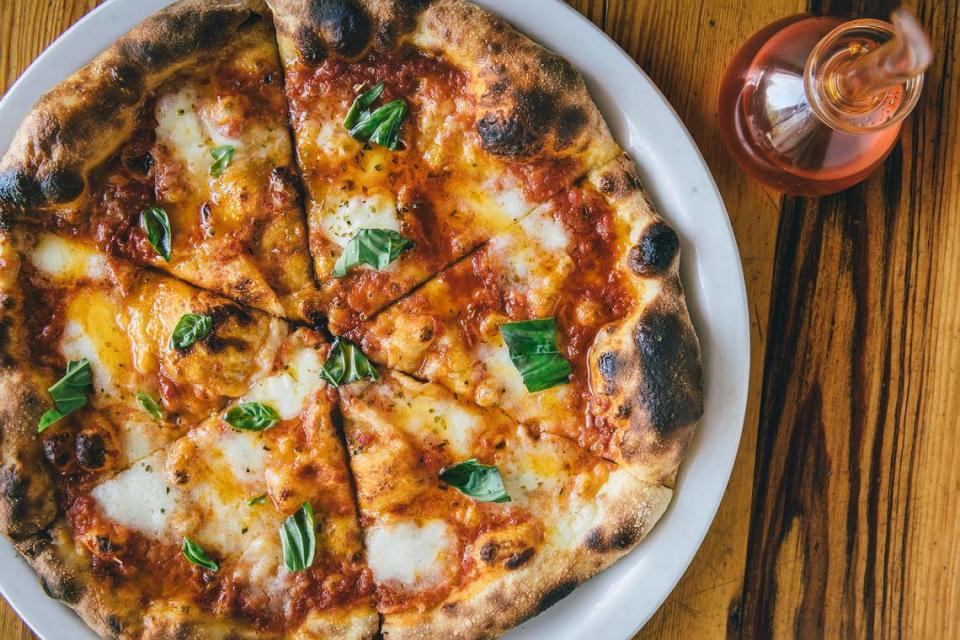Don’t force us to tip more. Just raise prices.
There were, in Rockingham in the 1960s and ’70s, three kinds of families: those that shopped at the Winn Dixie, those that shopped at the A&P and those that shopped at the Piggly Wiggly.
Our family was mainly Team A&P. The Saturday afternoon ritual at the crib went like this: my aunt would prepare to go grocery shopping, I’d beg to go with her and she’d finally relent, but not before warning, “Don’t you ask me to buy one thing that’s not on this list.”
Of course, she’d end up buying anything I asked for, which was usually whichever cereal had the best prize inside the box or a giant box of Cap’n Crunch’s Crunch Berries. (See, I was a health food junkie even way back then.)
The main thing I remember about the now-shuttered A&P is that on the door was a sign that read No Tipping Please.
Being unworldly and 8 years old, I had no idea what that meant. But being a prepubescent contrarian — some people use another word — I would, upon exiting, glance furtively around to make sure no one was watching and then tiptoe out of the store.
Amazingly, no one ever grabbed me.
I now know what tipping means, but some restaurants around the country are tainting its meaning.
In Durham, my favorite pizza joint, Pizzeria Toro, is adding an automatic 20 percent gratuity to all sit-down meals as part of what it calls on receipts a “fair wage service fee.”
T’ain’t fair to me.
Now, only a miserly misanthrope would oppose efforts to close the gap between employees who receive tips and those who don’t, but forcing customers to pay a 20 percent tip seems borderline extortionary.
Say, homes: Why not just raise the prices on your pizzas and pay the workers a decent wage?
Gordon Miller, a friend, mortgage company owner and former owner of Tarantini Italian Restaurant in Chapel Hill, asked the same thing. Miller said he’d fear “unintended consequences” from “forcing” tips out of customers.
“The problem with adding in a mandatory tip,” he said, “is that it rewards bad service and may make the evening too expensive. You don’t want to have the appearance of the highest priced steak due to a tip, but what if you charged that same price and didn’t allow tipping?”
“This,” Miller said, “makes the customer feel like the owner is taking care of both his clientele and employees, while at the same time being innovative.”
“If I learned anything from offering no-closing-cost mortgages when I wasn’t playing restaurant owner, it’s that consumers hate surprises,” he said. “Just tell me the price of your pizza and have a ‘no-tip’ policy. I won’t feel bad about having tipped a bad employee, getting a surprise when I see my check or having to be a math major to figure out the tip.”
Mamma mia, that’s a good suggestion.
How strongly do I think employees should be adequately compensated?
So strongly that I have not eaten at a particular national pizza chain in years, not since its then-CEO vociferously opposed providing health care to his employees because — he protested — that would add 17 cents to the price of each pizza!
Who wouldn’t, I wrote at the time, gladly pay 17 cents more for a pie to ensure that the person who fixed it had health care and didn’t have to come in to work sick?
(Lawyers for said pizza chain responded by telling me, in essence, to “keep our client’s name out yo’ mouf.” I have kept their name out of my mouf — and their pizza, too.)
Having worked at restaurants as a suds buster and a banquet waiter — two positions that seldom receive tips — I sympathize with my overworked, underpaid brethren and sisteren. I also want them compensated fairly.
When it comes to mandating tips, though, I’m guessing a lot of prospective customers are going to do like 8-year-old me: turn around and tip out.
Editorial Board member Barry Saunders is the founder of TheSaundersReport.com.


